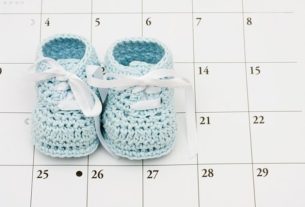The contraceptive can cause side effects such as abdominal pain, nausea, headache, pimples, changes in mood, libido and/or menstrual flow, especially in the first weeks of use.
The contraceptive pill is the method most used by women to prevent the development of a pregnancy, as it is easy to use and highly effective against unwanted pregnancies when used according to the doctor’s instructions. Check out what the contraceptive pill is and how to take it.
If you suspect contraceptive side effects, especially when they take a long time to improve, it is important to consult your gynecologist for an evaluation, and a change in contraceptive and/or change in dose may be recommended.

Main side effects
The main side effects of the contraceptive are:
1. Abdominal pain and nausea
Some premenstrual symptoms, such as headaches, abdominal pain and nausea, are common in the first weeks of using the contraceptive pill due to major hormonal changes.
What to do: It is recommended to consult a gynecologist when these symptoms prevent you from carrying out daily activities or take a long time to disappear, as it may be necessary to change the type of contraceptive pill.
2. Change in menstrual flow
It is common for contraceptives to cause changes in the amount, duration and expected date of menstrual bleeding. In addition, small bleeds may also occur between each cycle, which are called breakthrough bleeding. See what bleeding outside of your menstrual period could be like.
What to do: Changes in menstrual flow tend to improve over time as contraceptive use continues. Furthermore, it is important to always take the contraceptive at the same times, according to the doctor’s instructions, to avoid bleeding in the middle of the cycle.
However, especially when the changes last more than 3 months, it is recommended to consult a gynecologist, as it may be advisable to take a pill with a higher dosage or change the contraceptive, for example.
3. Weight gain
Weight gain may occur in some women and is believed to be due to changes such as increased appetite, fluid retention in the body and/or changes in fat metabolism.
What to do: You must maintain a healthy and balanced diet, as well as exercise regularly to avoid weight gain and fluid retention. Discover tea options that can be used to combat fluid retention.
4. Pimples appear
Although the contraceptive pill can sometimes be indicated in the treatment of acne in adolescence, some women may experience an increase in the number of pimples.
What to do: When acne appears or worsens after starting the contraceptive pill, it is advisable to inform your gynecologist and consult a dermatologist to adapt the treatment or start using anti-pimple creams.
5. Mood changes
The use of contraceptives can cause mood changes due to the effects of estrogen and progesterone on brain function, in some cases contributing to the development of depression, for example.
What to do: It is recommended to consult your gynecologist to change the type of pill or start a different method of contraception, such as an IUD or Diaphragm.
6. Decreased libido
The contraceptive pill can cause a decrease in libido due to the reduction in testosterone production in the body. However, this effect is more common in women who have high levels of anxiety.
What to do: You should consult your gynecologist to adjust the contraceptive dose or change the pill to another contraceptive method. See some natural ways to increase libido.
7. Headache
Some women may experience headaches due to contraceptive use, especially during the first few weeks. However, this pain tends to decrease with continued use of contraceptives.
What to do: If the headache takes a long time to disappear or is very intense in the first month, it is recommended to consult your gynecologist so that the contraceptive dose can be changed or the medication changed.
8. Increased breast sensitivity
The hormonal concentration in contraceptive pills can cause increased sensitivity in the breasts, which may cause pain when touched or in contact with clothing. However, this discomfort is more common at the beginning of using the contraceptive pill.
What to do: It is recommended to wear sports bras and wear looser clothing to avoid pain and discomfort. If the pain does not improve or other symptoms appear, such as redness, swelling or fluid leaking from the nipples, it is important to consult a gynecologist, who may be advised to change contraceptives and, in some cases, tests to identify breast diseases.
9. Increased risk of thrombosis
The contraceptive pill can increase the risk of deep vein thrombosis, especially in the case of diseases such as high blood pressure, diabetes or high cholesterol. Understand why the risk of thrombosis is higher in women who use contraceptives.
What to do: You should maintain a healthy diet and exercise regularly, as well as make regular appointments with your general practitioner to assess your blood pressure, blood sugar and cholesterol levels to prevent the formation of blood clots that can cause deep vein thrombosis.
Does birth control cause muscle sagging?
Contraceptives do not normally cause muscle flaccidity. However, although some studies indicate that these medications do not affect physical performance or muscle mass gain, others are needed to identify and prove the effects of contraceptives on muscle.
When to change contraceptive method
It is recommended to consult a gynecologist and evaluate the possibility of using another method to avoid unwanted pregnancy whenever side effects appear that prevent daily activities or when symptoms take more than 3 months to disappear.

Sign up for our newsletter and stay up to date with exclusive news
that can transform your routine!
Warning: Undefined array key "title" in /home/storelat/public_html/wp-content/plugins/link-whisper-premium/templates/frontend/related-posts.php on line 12
Warning: Undefined array key "title_tag" in /home/storelat/public_html/wp-content/plugins/link-whisper-premium/templates/frontend/related-posts.php on line 13



